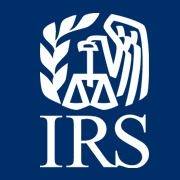
Following Wednesday’s announcement that the Treasury Department and Internal Revenue Service (IRS) are extending the individual tax filing deadline, Governor Mike Parson announced Friday that the Missouri Department of Revenue is extending the state individual tax filing and payment deadline for the 2020 tax year from April 15, 2021, to May 17, 2021.
“As our state continues recovering from COVID-19, we understand that many Missourians are still feeling the effects of the past year,” Parson said. “Extending the filing and payment deadline by one month will provide additional relief to Missouri families and tax professionals as they work to meet their obligations during what has already been a challenging tax season.”
The Department of Revenue will automatically provide this filing and payment relief, so filers do not need to take any action to qualify.
This relief applies to individual taxpayers, including those who pay self-employment tax. However, it does not apply to estimated tax payments that are due on April 15, 2021; that deadline has not changed.
Penalties and interest will begin to accrue on any remaining unpaid balances as of May 17, 2021. Individuals that file their return and pay their balance by May 17, 2021, will automatically avoid interest and penalties on the tax paid by May 17.
Customers may still ask for an extension of time to file their individual income taxes. With that extension, the return will not be due until October 15, 2021. However, any payments must still be made by May 17, 2021.
Earlier this year, the IRS announced that the nation’s 2021 electronic tax filing season would begin on February 12. On that date, the IRS began accepting and processing e-filed 2020 tax year returns. Since e-filed state returns are first sent to the IRS, the Department also began accepting and processing e-filed returns for the 2020 tax year on February 12.
“With a delayed start and recent tax code changes, this tax season is a particularly complicated one,” said Director of Revenue Ken Zellers. “For Missourians who have yet to file, we strongly encourage you to file electronically and use direct deposit, as it will result in the most accurate return and the fastest refund. We appreciate your patience as we navigate this tax season together, and we stand ready to assist you in any way we can.”
The Department’s Tax Return Status Tracker allows customers to enroll in automatic text and email alerts that are sent each time the status of their return is updated. Customers need their Social Security number, filing status, and anticipated refund or balance due to enroll and must re-enroll each year.
Get answers 24/7 by reviewing the Personal Tax FAQs or with the help of the Department’s chatbot, DORA, a virtual assistant programmed to respond to common taxation, motor vehicle, and driver licensing questions. Email questions to income@dor.mo.gov.
The Treasury Department and IRS announced March 17 that the federal income tax filing due date for individuals for the 2020 tax year will be automatically extended from April 15, 2021, to May 17, 2021. The IRS will be providing formal guidance in the coming days.
“This continues to be a tough time for many people, and the IRS wants to continue to do everything possible to help taxpayers navigate the unusual circumstances related to the pandemic, while also working on important tax administration responsibilities,” IRS Commissioner Chuck Rettig said. “Even with the new deadline, we urge taxpayers to consider filing as soon as possible, especially those who are owed refunds. Filing electronically with direct deposit is the quickest way to get refunds, and it can help some taxpayers more quickly receive any remaining stimulus payments they may be entitled to.”
Individual taxpayers can also postpone federal income tax payments for the 2020 tax year due on April 15, 2021, to May 17, 2021, without penalties and interest, regardless of the amount owed. This postponement applies to individual taxpayers, including individuals who pay self-employment tax. Penalties, interest and additions to tax will begin to accrue on any remaining unpaid balances as of May 17, 2021. Individual taxpayers will automatically avoid interest and penalties on the taxes paid by May 17.
Individual taxpayers do not need to file any forms or call the IRS to qualify for this automatic federal tax filing and payment relief. Individual taxpayers who need additional time to file beyond the May 17 deadline can request a filing extension until Oct. 15 by filing Form 4868 through their tax professional, tax software or using the Free File link on IRS.gov. Filing Form 4868 gives taxpayers until October 15 to file their 2020 tax return but does not grant an extension of time to pay taxes due. Taxpayers should pay their federal income tax due by May 17, 2021, to avoid interest and penalties.
The IRS urges taxpayers who are due a refund to file as soon as possible. Most tax refunds associated with e-filed returns are issued within 21 days.
This relief does not apply to estimated tax payments that are due on April 15, 2021. These payments are still due on April 15. Taxes must be paid as taxpayers earn or receive income during the year, either through withholding or estimated tax payments. In general, estimated tax payments are made quarterly to the IRS by people whose income isn’t subject to income tax withholding, including self-employment income, interest, dividends, alimony or rental income. Most taxpayers automatically have their taxes withheld from their paychecks and submitted to the IRS by their employer.
The federal tax filing deadline postponement to May 17, 2021, only applies to individual federal income returns and tax (including tax on self-employment income) payments otherwise due April 15, 2021, not state tax payments or deposits or payments of any other type of federal tax. Taxpayers also will need to file income tax returns in 42 states plus the District of Columbia.
State filing and payment deadlines vary and are not always the same as the federal filing deadline. The IRS urges taxpayers to check with their state tax agencies for those details. Missouri taxpayers can find more information at https://dor.mo.gov/personal/individual/.


















